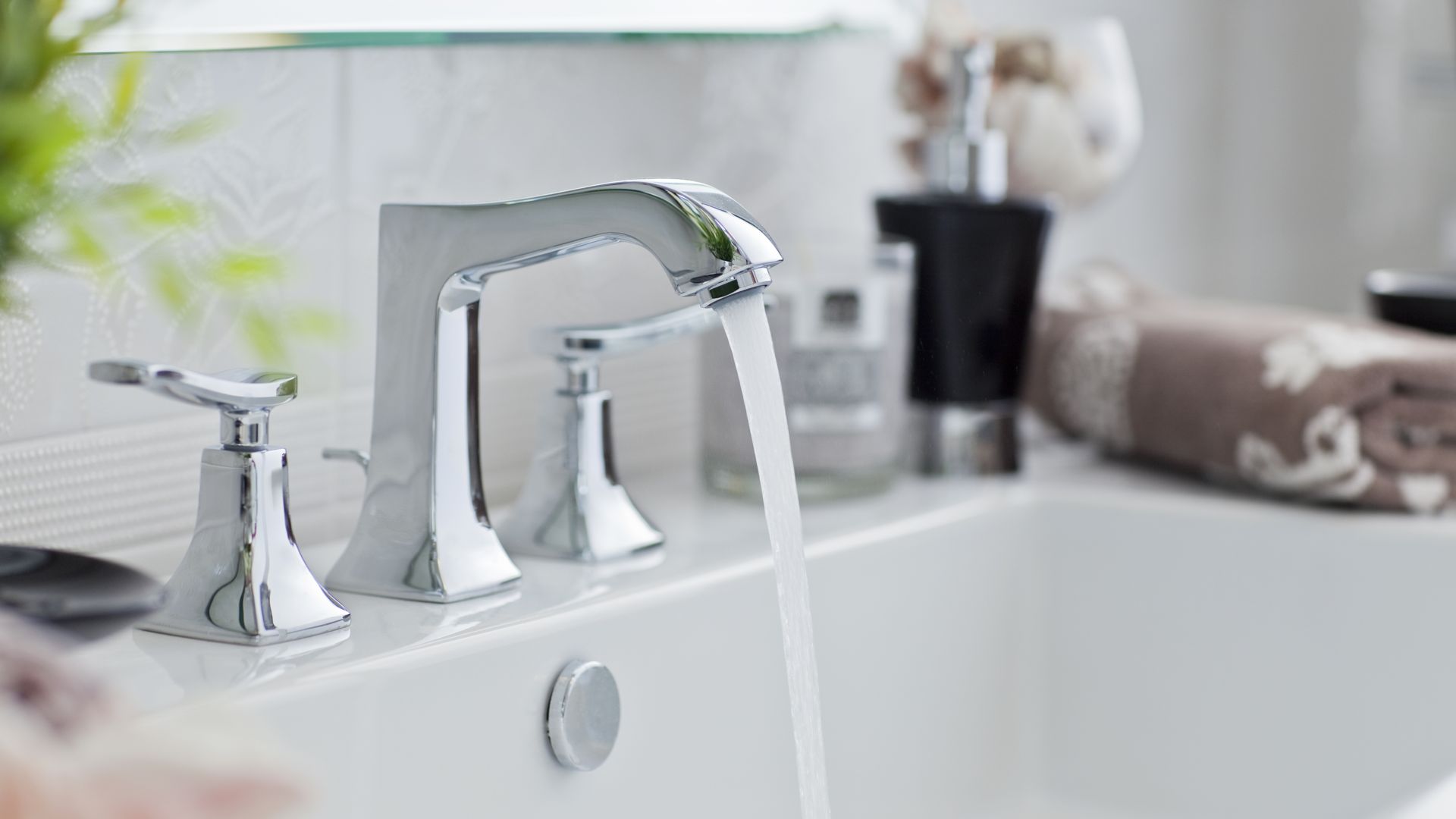Rowlett Water Heater Repair
Providing Hot Water Heater Repairs Throughout DFW
A functioning water heater is essential for the comfort and convenience of your home, providing hot water for showers, cleaning, and cooking. Lone Star Water Heaters works diligently to keep water heaters throughout the DFW Metroplex operating efficiently and safely. The team of water heater repair technicians in our Rowlett office knows what it takes to deliver dependable solutions for your home or business.
Call (888) 904-4239 or contact us online for water heater repair in Rowlett, TX. We're available 24/7!
Signs Your Water Heater is Damaged and Needs Repair
The sooner you contact our team, the better our chances of minimizing damage and your costs.
Call for water heater repair service if you notice:
- Inconsistent water temperature: Fluctuating water temperatures indicate a failing heating element or thermostat.
- Strange noises: Banging, popping, or rumbling sounds from your water heater often point to sediment buildup or a failing component. These noises can signal that your unit is working harder than necessary, leading to premature wear and tear.
- Leaking water: Noticeable leaks around your water heater can lead to significant water damage in your home. Even small drips may be a sign of a larger problem, such as a corroded tank or loose connections.
- Discolored water: Rusty or murky water is a sure sign that your water heater or its pipes are corroding.
- Reduced hot water supply: If your water heater is unable to keep up with your household's hot water demands, it may be due to a malfunctioning element or sediment buildup.
- Foul odors: Bacterial growth within the tank can cause a nasty stench from your hot water tap.
Most water heaters have a lifespan of about 10-15 years. If yours is approaching or has exceeded this age, it's more susceptible to breakdowns and inefficiency. We will always attempt to repair your water heater first, but sometimes it's more cost-effective to replace an older water heater than to try to repair it.
Prompt & Reliable Water Heater Repair Solutions
Our team in Rowlett understands the urgency when your water heater shows signs of failing. We handle problems ranging from minor fixes to major repairs and are always available. Our phone is answered 24/7. We accommodate same-day scheduling as far as our staffing allows, including weekend appointments for your convenience.
We believe in providing timely and efficient solutions, recognizing that a malfunctioning water heater can severely disrupt daily activities. Whether it’s a commercial or residential issue, we prioritize getting you back on track with minimal downtime. Our technicians undergo continuous training to stay updated with the latest water heater technologies and repair techniques, ensuring that you receive the best service possible.
Call (888) 904-4239 today. You can also use our online contact form to schedule an appointment for water heater repair in Rowlett.

Take a Peek
Plumbing Updates and Trends
The Risks of DIY Water Heater Repair
Attempting to repair a water heater on your own can expose you to significant safety hazards. Water heaters operate using electricity or gas, which can be dangerous if handled improperly.
For instance, working on an electric water heater without proper training could lead to electrical shock or even fire hazards. Similarly, gas water heaters involve gas lines and connections that, if incorrectly handled, could result in gas leaks or explosions. These risks are hazardous, not only to the person attempting the repair but to everyone in your home. Water heaters steam under pressure, which can cause burns or scalds if not correctly managed.
Beyond the immediate safety concerns, DIY water heater repair can lead to more technical complications. Many water heaters have warranties that can be voided if a certified professional does not conduct repairs. Furthermore, a DIY effort might inadvertently cause further damage to the water heater, resulting in more extensive repairs or even the need for a complete replacement.
In addition to risks and technical issues, there's the economic consideration. While a DIY approach might seem cost-effective initially, improper handling can lead to elevated repair costs in the long run. Without the right tools or knowledge, you might inadvertently exacerbate minor issues, leading to significant damage. Professional repair services are not only equipped with the proper tools but also have the experience needed to diagnose problems accurately and efficiently. By trusting Lone Star Water Heaters, you ensure that repairs are done correctly and professionally the first time, saving time and potential future expenses.
Call Lone Star Water Heaters at (888) 904-4239 today for water heater repair in Rowlett.


why choose us? here's why!
-
Emergency Services Available
-
Detail Oriented & Professional
-
Customer Care Focused
-
Quality Material & Products
The Risks of a Damaged Water Heater
Letting damage linger can lead to any number of problems, including the following:
- Increased energy bills: A failing water heater can consume more energy as it struggles to maintain the desired temperature. If your water bill looks uncharacteristically high, the water heater could be the culprit.
- Water damage: Leaks often promote the growth of mold and mildew. This is a serious risk to your health and to the integrity of your property.
- Health hazards: Contaminated water from a corroded or bacteria-infested heater can become a serious health risk to your family.
- Unreliable hot water supply: A faulty water heater can lead to interruptions in your hot water supply, impacting daily activities like bathing, cleaning, and cooking.
- Safety hazards: A damaged water heater can lead to safety risks. Failure to properly regulate temperatures can lead to scalding from excessively hot water, and in extreme cases, there can even be the risk of explosion.
- Environmental impact: Inefficient water heaters increase energy consumption and contribute to higher carbon emissions. You can reduce your environmental footprint by helping your water heater work properly.
Addressing water heater issues promptly not only mitigates these risks but also maintains the operational efficiency of your home or business. Regular maintenance and timely repairs are crucial in preventing the escalation of minor problems into more severe and costly issues. By scheduling routine checks with Lone Star Water Heaters, you ensure that your water heater functions optimally year-round, providing peace of mind and protection for your investment.
Call us at (888) 904-4239 for water heater services near you.
-
What’s the Difference Between Conventional and Tankless Water Heaters?
Conventional water heaters are defined by their signature tanks. These tanks are used to pre-heat and maintain a ready-to-go supply of hot water. This means that they can provide hot water immediately whenever it’s needed, but it also means that that reservoir can run out, leaving you without heated water.
Tankless hot water heaters, as the name implies, lack a tank, and thus cannot maintain a reservoir of pre-heated water. Instead, they use heat transfer technology to heat water as it moves through your pipes. While it takes a bit longer for tankless water heaters to heat water and deliver it to your appliances and fixtures, once your water is hot, it will stay hot as long as you need it to — there’s no limited supply that you have to worry about exhausting.
-
Do I Need a Specialized Technician to Service My Commercial Water Heater?
Commercial water heaters can come in either tank or tankless varieties but are almost always designed to operate at a much larger scale. Depending on the type of commercial property they service, commercial water heaters may need to provide water to specialized equipment or enough fixtures to stock multiple homes or offices.
If commercial hot water heaters are just larger versions of their residential counterparts, can they be serviced by the same technicians? We wouldn’t recommend it. These water heaters are often hooked up to intricate and specialized plumbing systems that require experience to navigate. Plus, with their large size, commercial water heaters require extra skills to handle and clean thoroughly. We recommend that you always get your commercial water heater services from a team with experience working with these specialized pieces of equipment.
-
Why Do I Keep Running Out of Hot Water?
If your water turns cold or lukewarm in the middle of your task, or if you experience flashes of cold water in your hot shower, you may be wondering what the cause of the issue is. The most likely explanation is that you’re using hot water faster than your water heater can generate it. This can happen if you’re using multiple appliances and fixtures at once, and it’s especially likely if your water heater is malfunctioning or worn down.
So what kinds of issues can cause you to run out of hot water faster than usual? First, there’s your heat source. In a conventional water heater, this is probably your pilot light, while in a tankless water heater, this would be your heat exchanger. If your heat source is faulty, it’s harder for your unit to heat water. Another likely culprit is sediment buildup in a conventional water heater, which takes up valuable space in your tank and can even clog up your pipes and affect your water pressure.
At the end of the day, there are a lot of issues that can cause you to run out of hot water faster and more frequently, and not all of them are things you can diagnose and resolve on your own. If running out of hot water has become a common problem, call our hot water heater specialists to get your unit fixed.

.2502180200462.jpg)
.2411210147490.jpg)